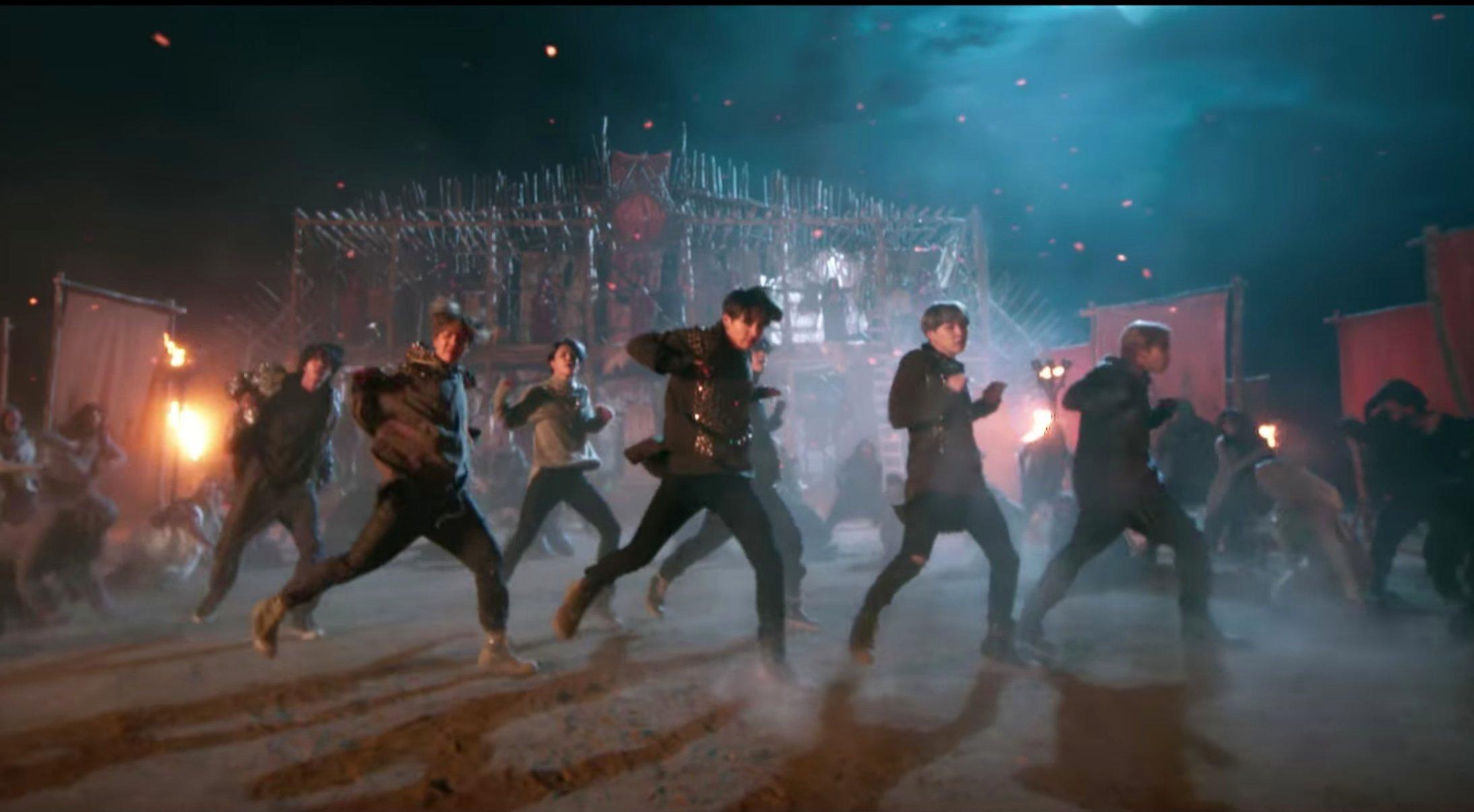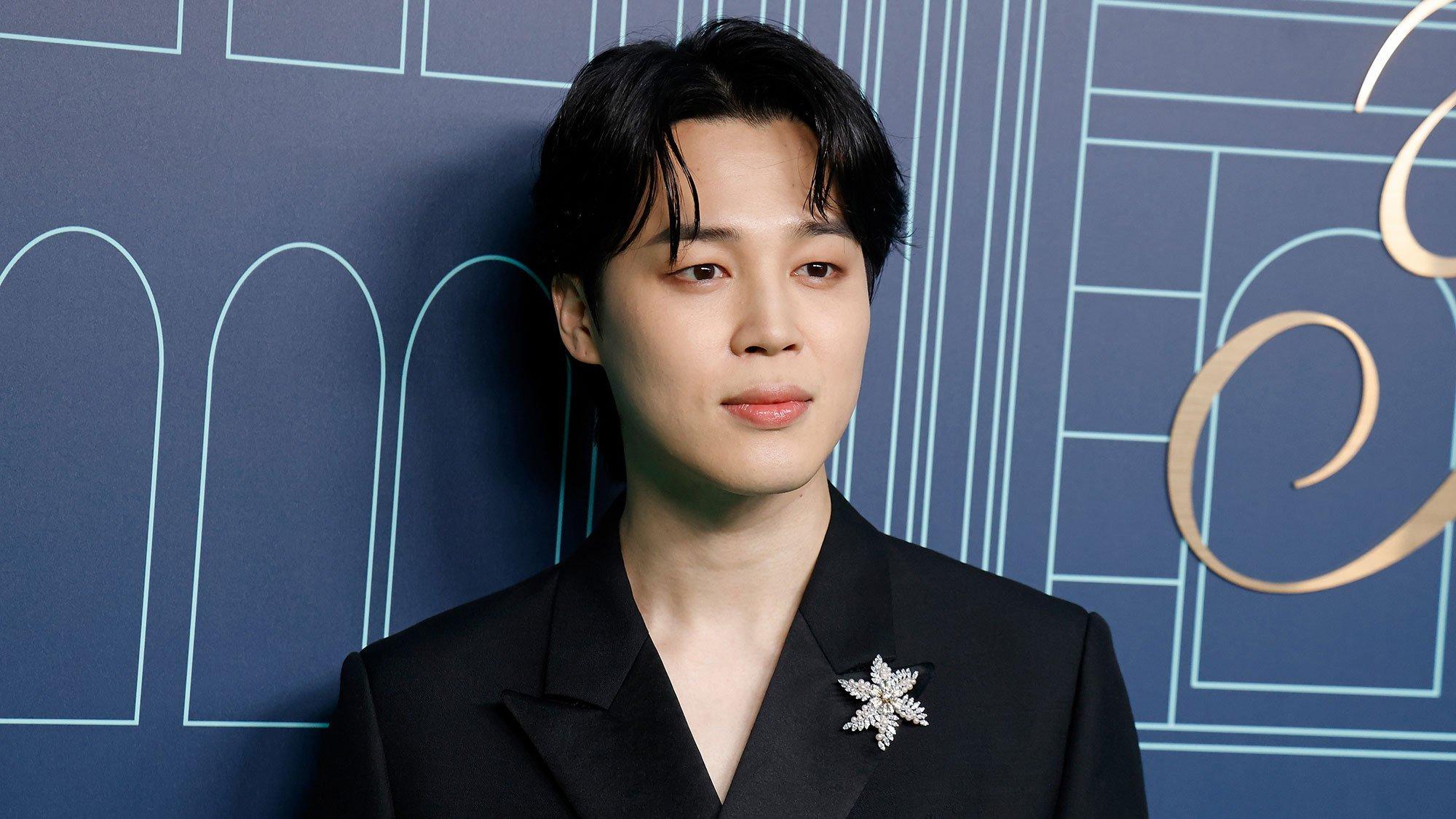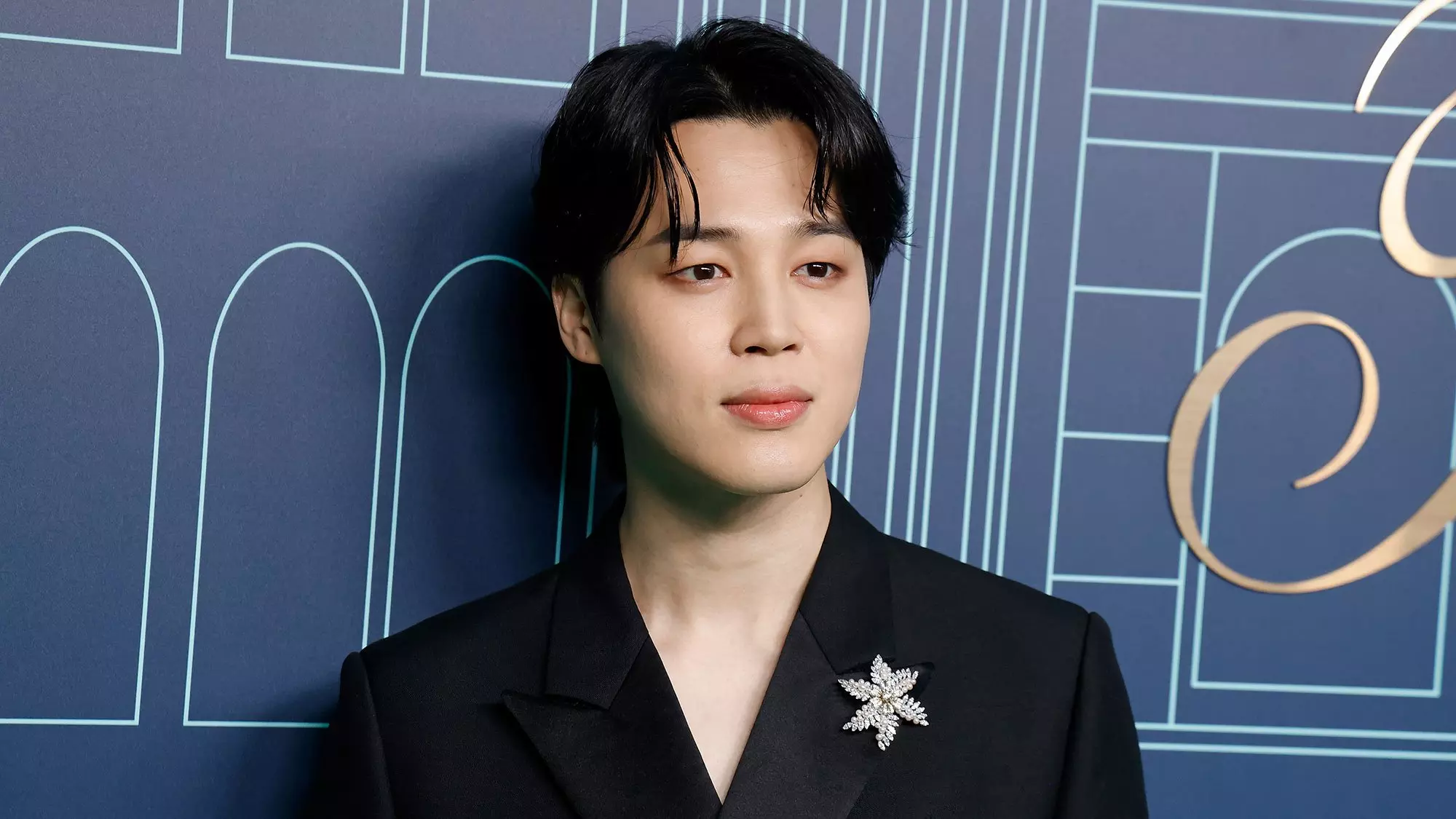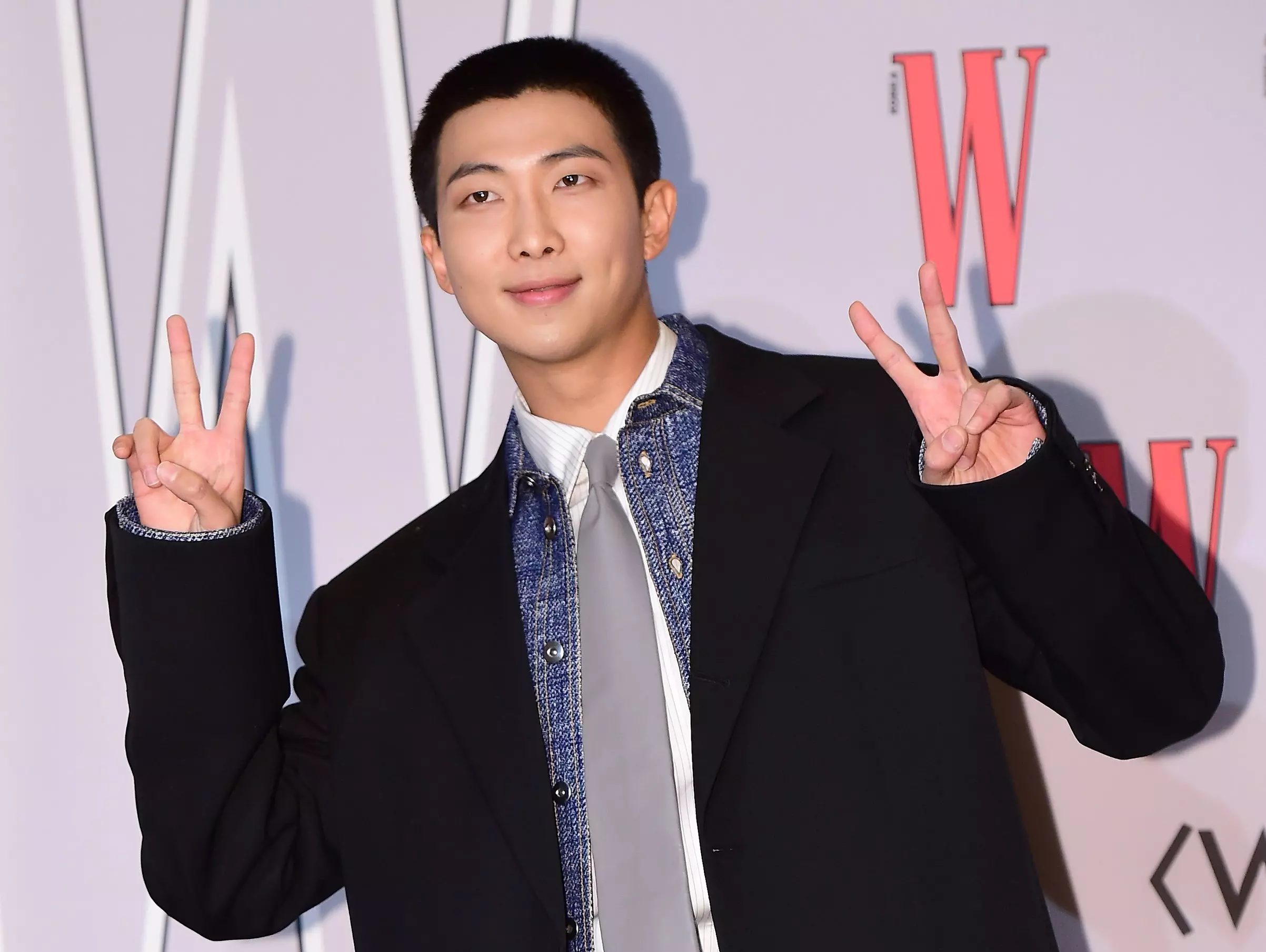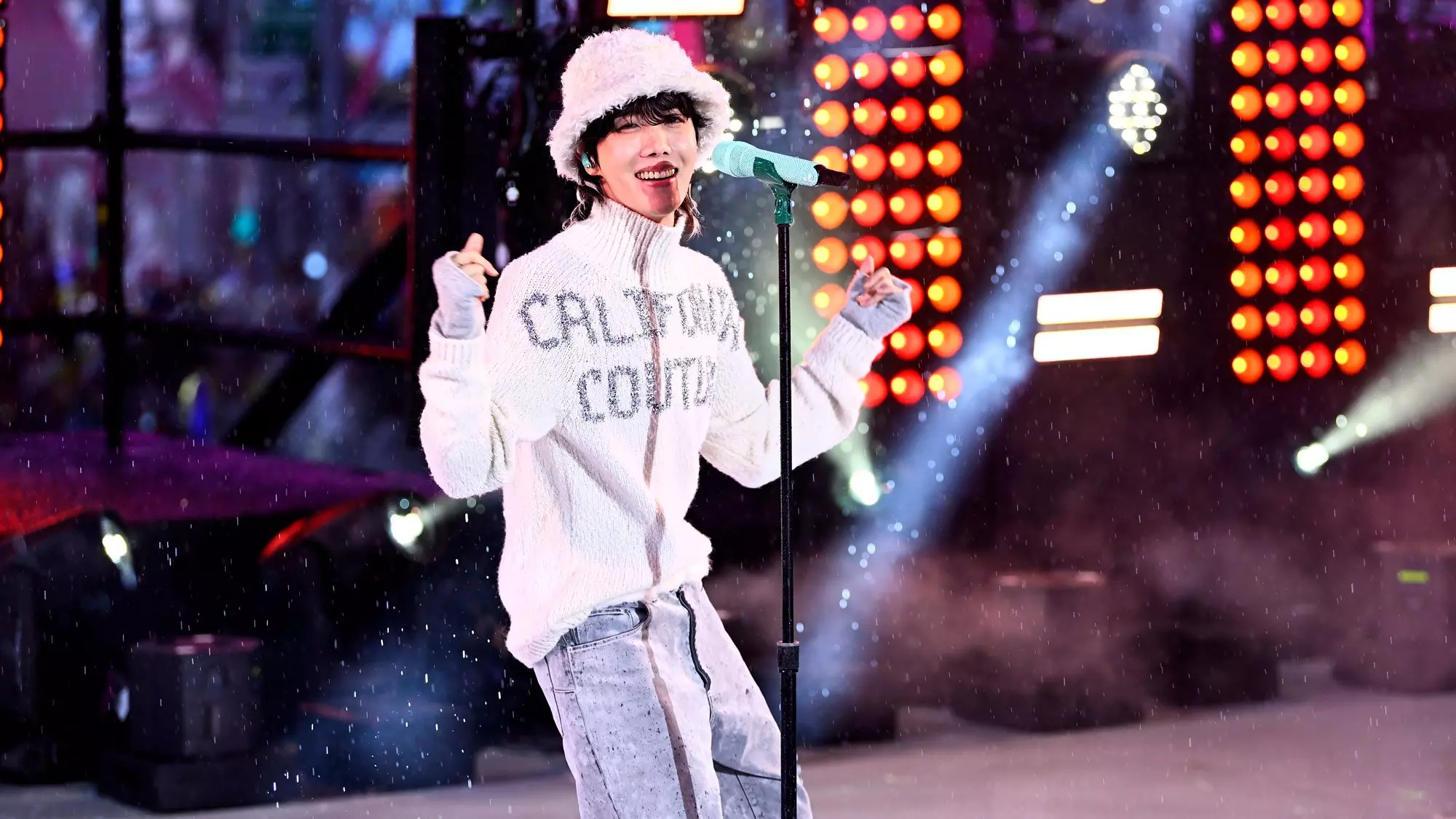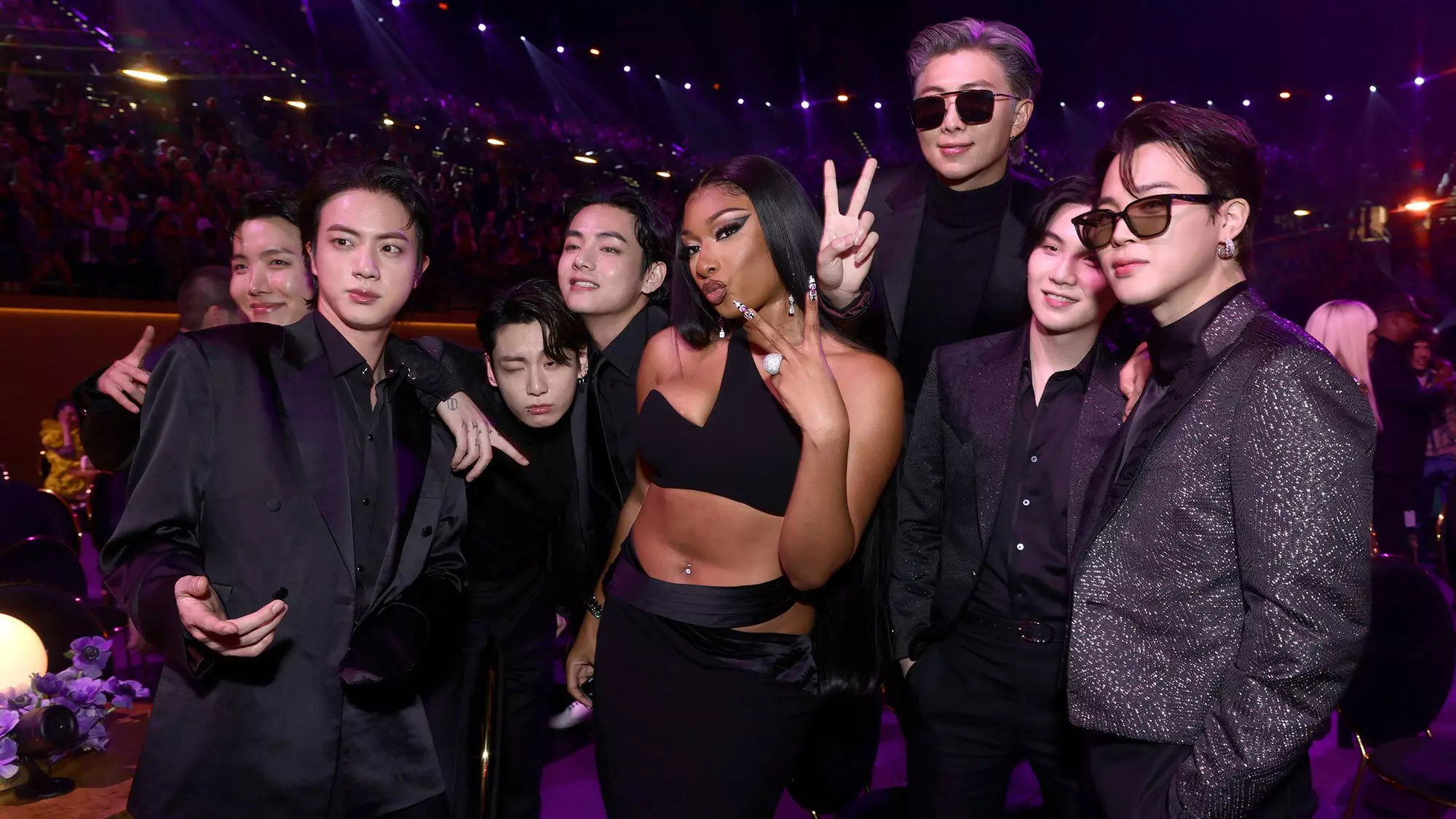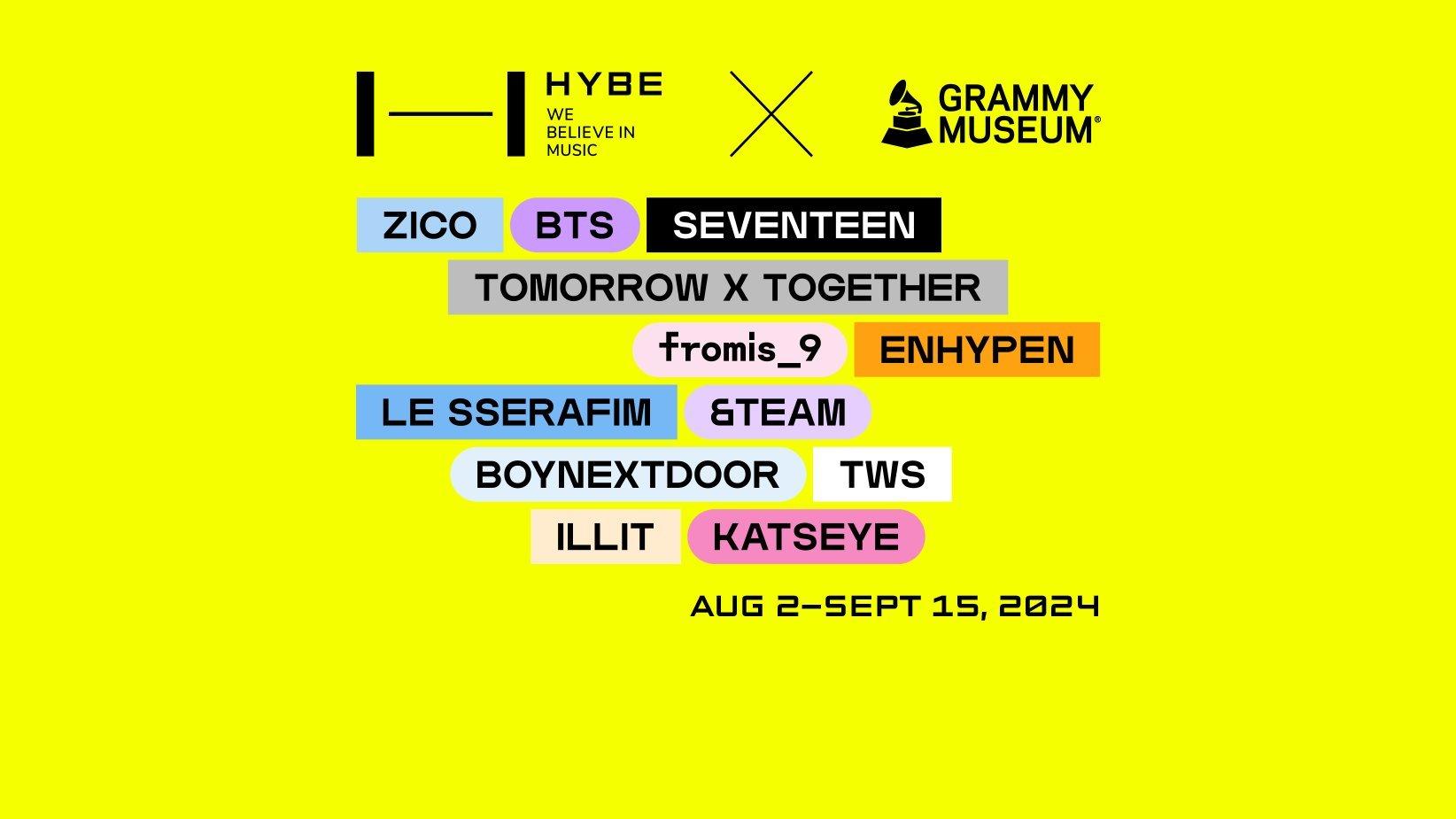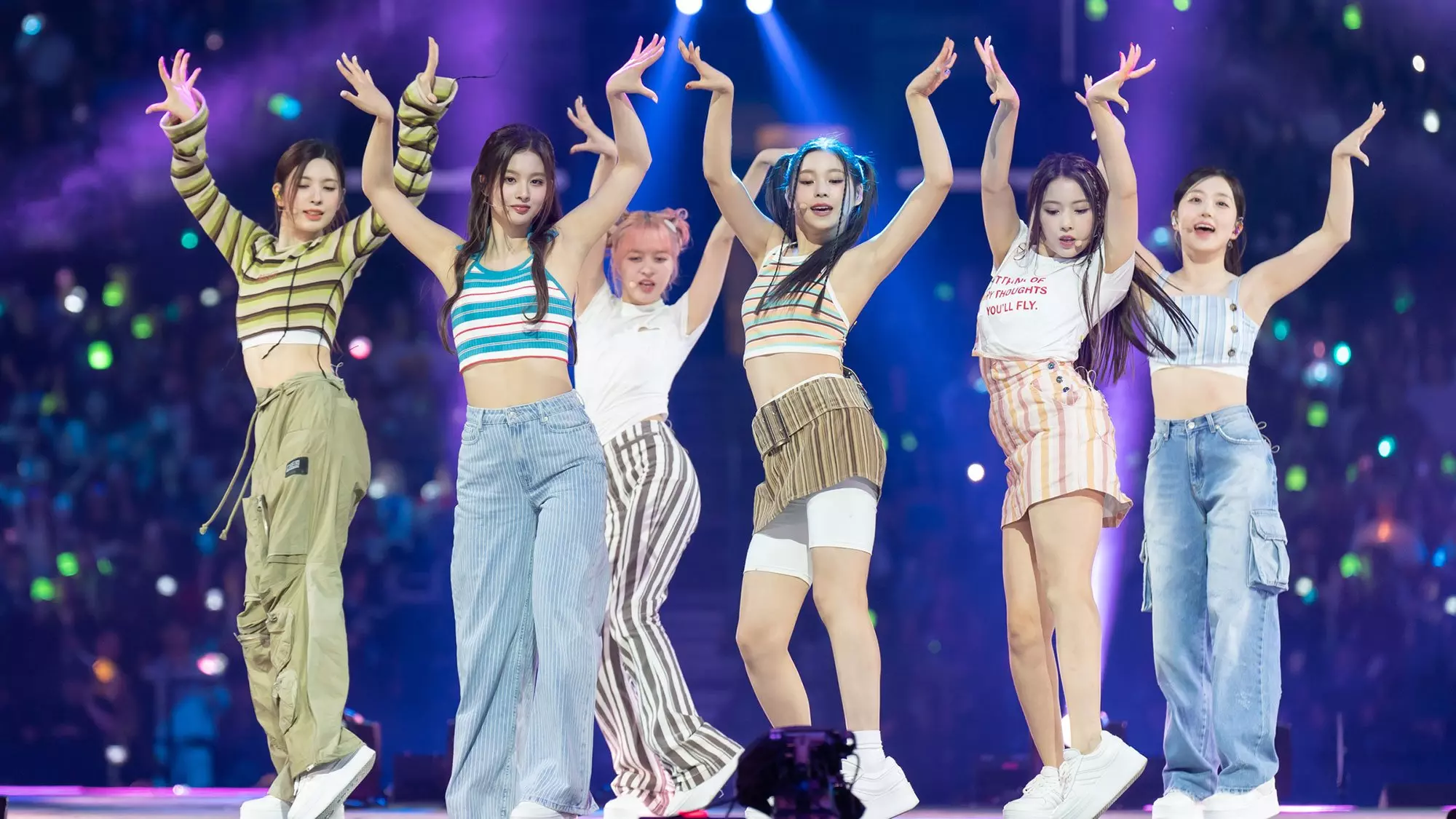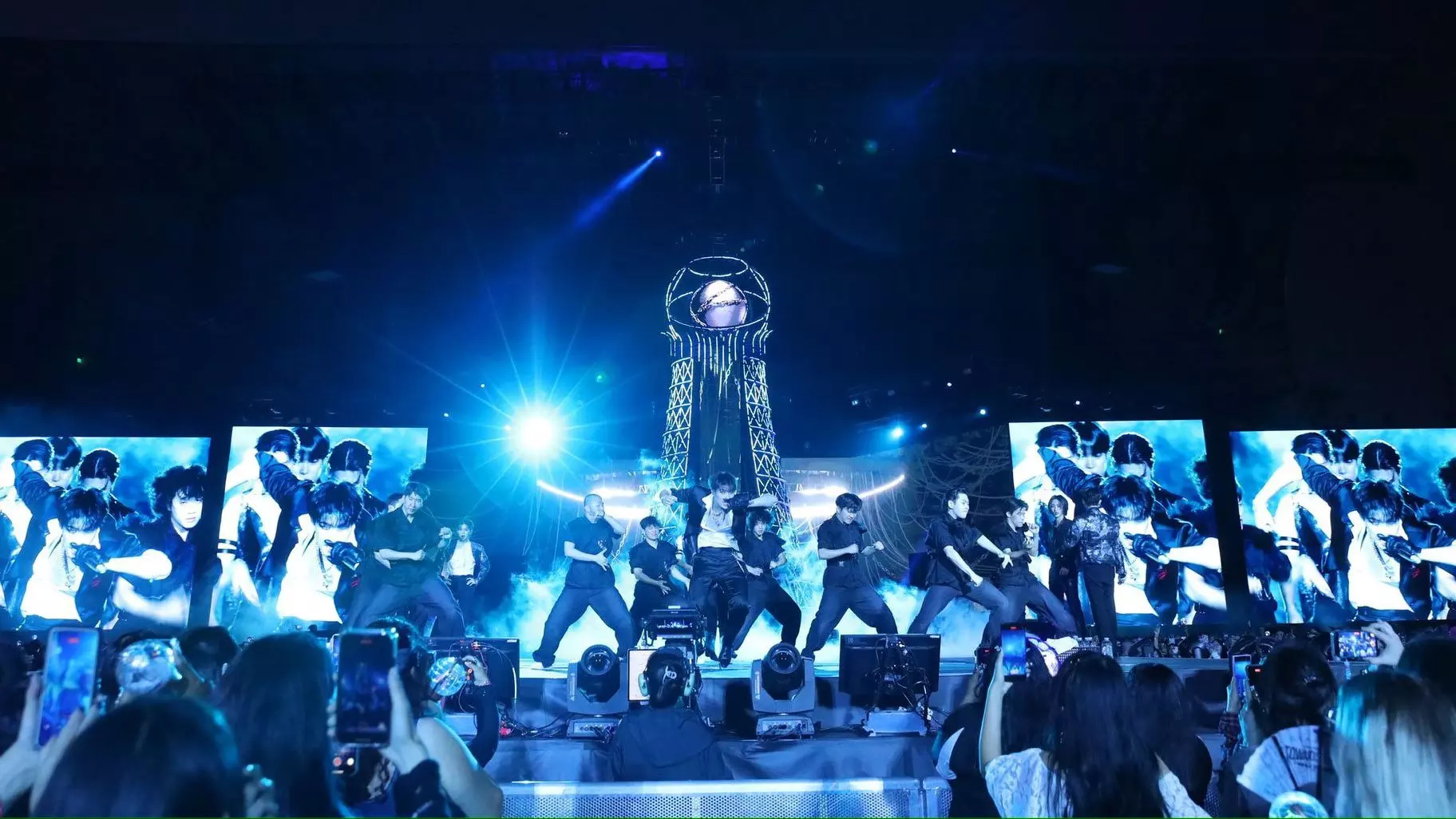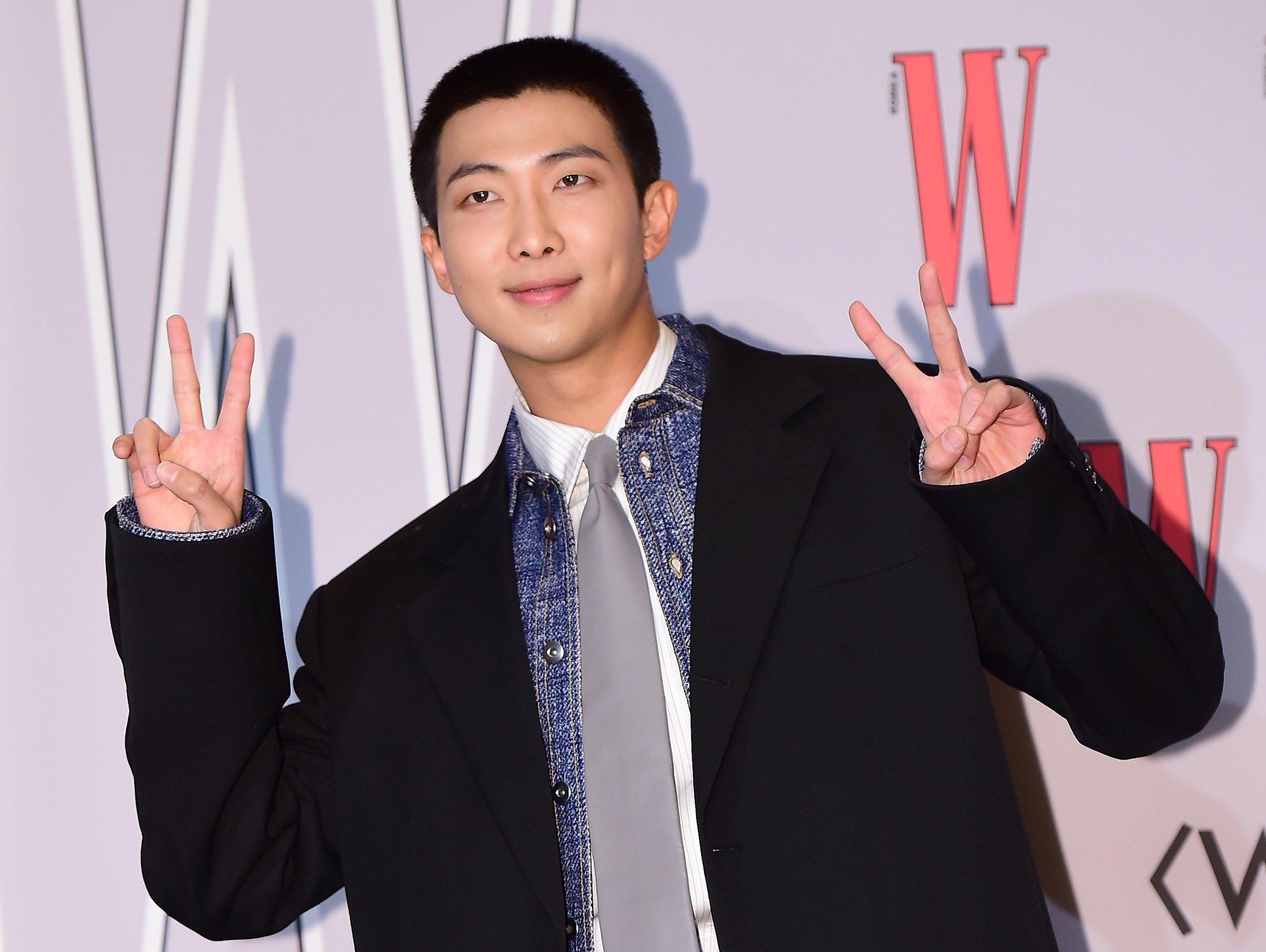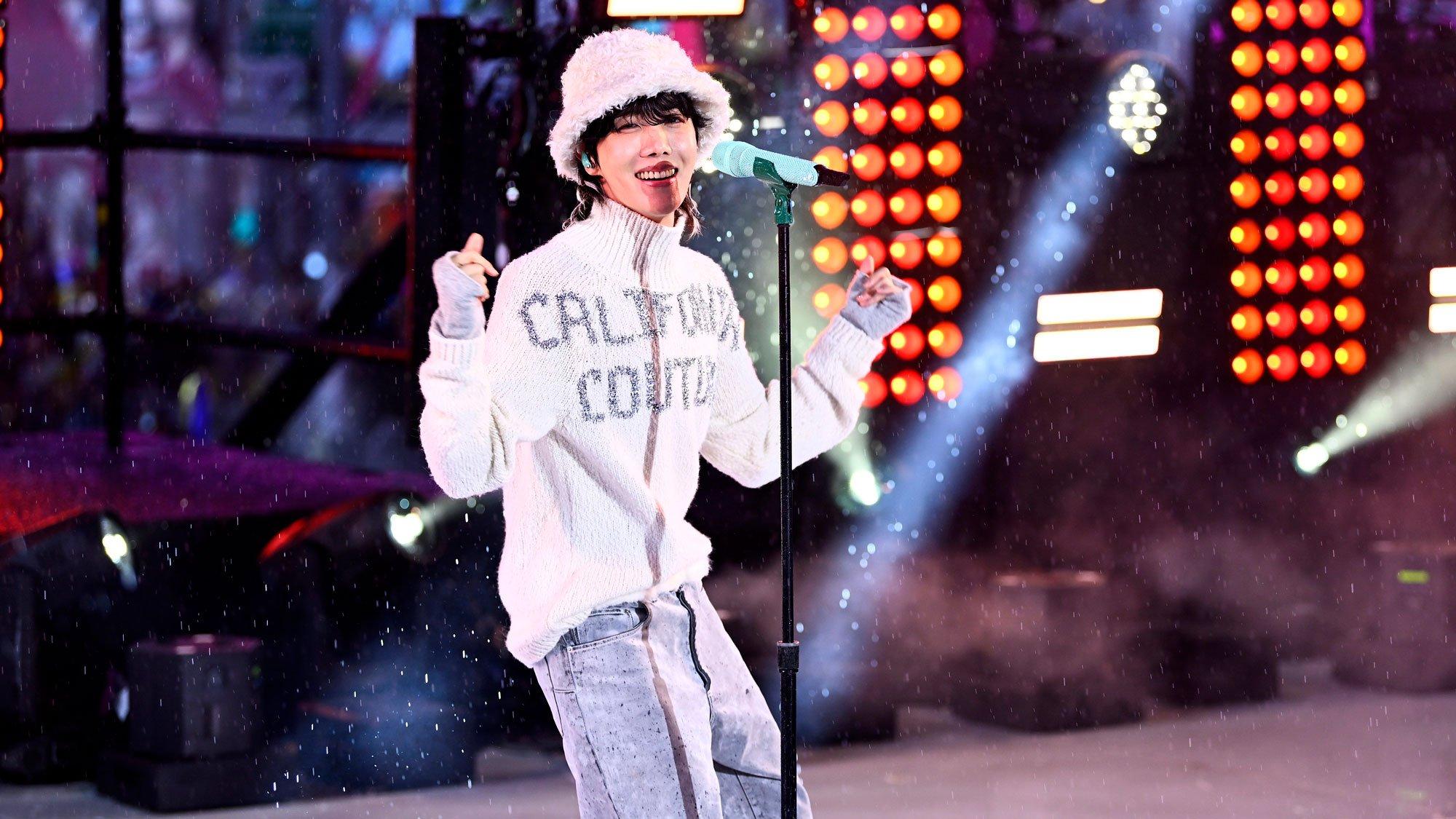"Just dance," j-hope commands on his 2018 BTS solo track.
For the international sensation, that's what it's always been about: expressing himself through movement. Now, 11 years after the launch of the seven-piece group, j-hope takes a U-turn to where it all began, before his K-pop idol days, street dancing between his hometown, Gwangju, and Seoul, South Korea.
Out March 29, j-hope's new special album, Hope on the Street Vol.1, is a musical ode to dancing that boasts a "vibrant collection of six tracks spanning a diverse array of sounds and moods that showcase j-hope's musical prowess and depth." Like j-hope's global perspective of dance, the EP expands borders and sounds, featuring appearances from HYBE labelmate HUH YUNJIN of LE SSERAFIM as well as American stars Nile Rodgers and Benny Blanco.
The mini-album will also be accompanied by a docuseries of the same name, premiering on Amazon Prime Video on March 28. According to a press statement, the six-part project will "highlight j-hope's story and love for dancing as he begins a new journey."
Ahead of Hope on the Street Vol.1's arrival, take a look at how j-hope's origins inspired the project — from his enrollment in a local dance academy to songwriting with J. Cole on their 2023 single, "on the street."
Finding Purpose In Dance
Long before becoming a global superstar, j-hope (born Jung Ho-seok) first discovered his love for dancing on the playground.
"The school I went to had a dance lesson for 30 minutes in the morning. They would play a dance video, and we would copy it as exercise," j-hope recalled in a 2013 interview for the BTS Japan Fanclub magazine. "My friends around me would praise me, saying, 'You're really good!'"
Eventually, those recess workouts turned into a passion. J-hope began practicing moves at home and freestyling at local talent shows. By the sixth grade, he told his parents he was serious about it, enrolling him in Gwangju's Joy Dance Academy.
While at the Academy, j-hope also joined the underground dance crew, NEURON, building a reputation under the name "Smile Hoya." Though he hasn't participated in the troupe since his pre-BTS days, he still recognizes it as one of the most influential parts of his career.
He'll even honor the crew with Hope on the Street, which includes a track called "NEURON," featuring Gaeko and yoonmirae. He will also return to Gwangju in the closing chapter of the docuseries.
It's not the first time j-hope shouted out Gwangju, either. His 2019 collab with Becky G, "Chicken Noodle Soup," paid tribute to his beloved upbringing: "From Gwangju, one gang of you-know-what/ Geumnam Chungjang Street, that's my Harlem." (The same track also foreshadowed his latest release: "Hope on the street, now it's my own way.")
Forging A New Life In Music With BTS
J-hope continued to have a diligent mindset as a trainee at Big Hit Entertainment. But as revealed in BTS' 2018 docuseries, Burn the Stage, training and dieting became emotionally and physically tolling. At one point, j-hope even considered leaving the group.
"I couldn't do things I wanted to do," he revealed during a 2021 You Quiz on the Block segment. "To be honest, I wanted to play games. I want to go out and hang out. I wanted to stay with my family. I had to give up a lot of things from that perspective."
The stress became so intense that he bought a one-way ticket to Gwangju. But ultimately, the brotherhood and love of music he formed with BTS gave him the courage to return: "I came back because I trusted you," j-hope recounted.
And they trusted him, too: "I told [Big Hit] that we needed Jung Ho-seok. We couldn't debut without him," RM responded. Meanwhile, Jung Kook delivered a tearful speech to encourage him to stay with the band.
The longer he stayed, the more j-hope began to love other sides of music, like producing and songwriting. Now, he has become one of the main writers for the group's tracks, alongside RM and Suga, and has co-penned all of his solo projects, including Hope on the Street.
Spreading His Wings With Two Full-Length Solo Projects
After nearly 10 projects with BTS, j-hope delivered his debut mixtape, Hope World, in March 2018.
"My fantasy had always been making a music video and performing with the music I had created. I wanted to put my own story to music and share it with the world," he told Time magazine upon Hope World’s release.
It's an introduction to j-hope the artist, inviting listeners to step into Hope World, a colorful kaleidoscope of different cultures and styles — something that has also been a key part of his dance journey.
Though, j-hope still wanted to dig deeper into his artistry. He developed his sound, becoming more vulnerable in his lyricism on tracks like 2020's "Outro: Ego." By 2022, he was ready to drop his first studio album, Jack in the Box.
Where Hope World showcases j-hope's dance performance, Jack in the Box highlights "my artistry in music." But Hope on the Street paints the full image of the phenom — part musician, part dancer.
Laying The Groundwork With "On The Street," Featuring J. Cole
One of j-hope's earliest musical influences was J. Cole. The rapper inspired j-hope's stage name and the title of his mixtape, which pays homage to 2011's Cole World. In 2022, j-hope honored Cole with "Born Singer," the BTS re-write of Cole's "Born Sinner." So, a celebratory meeting was in order when they were both scheduled to perform at Lollapalooza (where j-hope made history as the first Korean soloist to headline).
"[He's] my idol," j-hope said to Variety in 2023. Since they met, he "couldn't stop thinking about how great it would be if we could make music together." He reached out to J. Cole, and "on the street" was born.
As j-hope told Variety, the "street" concept became a metaphor for life: "The street is a place where people can actually encounter and feel real lives of people: a child's innocent mind; first encounter with someone and falling in love; someone in an urgent moment;" and so much more. It's the place where he learned to love dance — and where he grew a love for music and artists like J. Cole, who called their collab "a blessing" in the behind-the-scenes footage.
And thus, "on the street" became the springboard for his forthcoming project, Hope on the Street.
Unveiling A Docuseries And A Multi-Part Project
By the tail end of 2023, each member of BTS had enlisted in mandatory military service. But even during the septet's hiatus, j-hope managed to serve up a surprise announcement of Hope on the Street on Feb. 17 with a fitting montage of dance videos.
The joint docuseries and album follows j-hope's journey of self-discovery, accompanying his former instructor, Boogaloo Kin, as they dance their way through the streets of Osaka, Seoul, Paris, New York, and his hometown while meeting other dancers.
"Hope on the Street, my roots, the most important part of my life. This is how j-hope danced. I wanted to share this story with you," he said in an interview for the documentary.
After years of breaking records and making history as a member of BTS, it was "a chance to look back on my life," he explained in another trailer. "I realized the answer was in song and dance."
Culminating j-hope's skills in both art forms, Hope on the Street is a love letter to everything that's made him who he is today — and proof he'll never forget it.
6 Takeaways From 'BTS Monuments: Beyond The Star'

